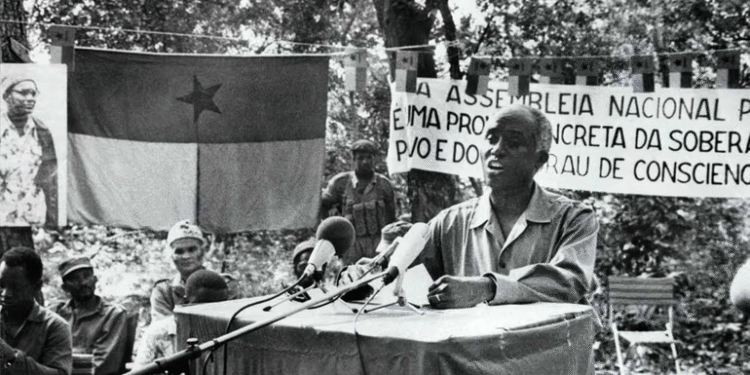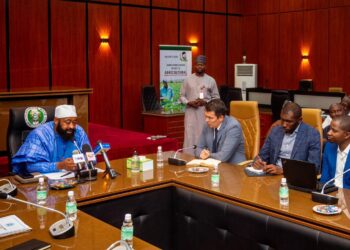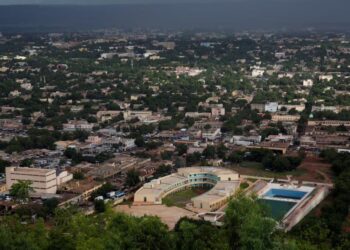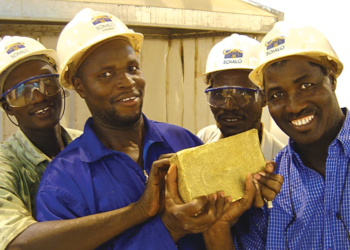Aristides Maria Pereira was born on November 17, 1923, in Fundo de Figueiras, Cabo Verde. He received his primary education in his hometown before moving to Mindelo on the island of São Vicente, where he completed his secondary education. In 1944, Pereira began working for the Portuguese colonial administration, holding a position in the Posts and Telegraphs Department. This seemingly ordinary position had a profound impact on the course of his life, allowing him the opportunity to travel between islands, witness the difficult living conditions of the archipelago’s inhabitants, and become acutely aware of the depth of Portuguese colonial oppression.
During his work, Pereira witnessed how the colonial system isolated the islands from each other and how the central authorities exploited local resources with little return for the population. Economic conditions were dire, with the population suffering from periodic famines and droughts. This situation fueled a deep sense of injustice and drove him to seek ways to achieve change.
In the mid-1950s, Pereira began connecting with groups of anti-colonial intellectuals and activists, many of whom, like himself, worked in the public sector. These individuals exchanged ideas about the need for liberation from Portuguese rule, and these meetings were conducted in complete secrecy for fear of retribution by the Portuguese Political Police (PIDE).
The major turning point in Pereira’s life came in 1956, when he participated in founding the African Party for the Independence of Guinea and Cabo Verde (PAIGC). The party had a unique goal: to unite Cabo Verde and Guinea-Bissau into a single state after independence. This idea came from the party’s founders, led by Amical Cabral, a charismatic figure and revolutionary thinker. Cabral believed that Guinea-Bissau and Cabo Verde shared deep historical and cultural ties, and that unification would give them greater political and economic strength to face the challenges of post-independence.
Pereira played a pivotal role in the party from the beginning. He possessed strong organizational skills and was able to connect with diverse social strata, from peasants to intellectuals. Initially, the party operated underground, with Pereira using his postal service to deliver secret messages and distribute anti-colonial leaflets.
As Portuguese repression escalated, the party decided to turn to armed action. In 1961, the party declared the start of armed struggle in Guinea-Bissau, where the geographical conditions allowed for a guerrilla war against Portuguese forces. In Cabo Verde, armed action was virtually impossible due to the small, isolated islands. Therefore, Pereira and his colleagues focused on organizing clandestine support networks, recruiting youth, and raising awareness of the national cause.
In 1965, Pereira moved to Guinea-Bissau to lead the party’s logistical and political operations. In 1973, Amical Cabral was assassinated, an event that shook the revolutionary movement. After Cabral’s death, Pereira assumed leadership of the party, placing him in a very difficult position. He had to fill the void left by Cabral, maintain party unity, and continue the struggle against Portuguese forces.
In September 1973, Guinea-Bissau unilaterally declared its independence. In 1974, the Carnation Revolution in Portugal overthrew the authoritarian regime, opening the door to peaceful negotiations with its former colonies.
In 1975, after intense negotiations, Cabo Verde gained independence from Portugal. On July 5, 1975, the Republic of Cabo Verde was proclaimed, and Aristides Pereira was elected its first president. This marked the beginning of a new era filled with challenges.
The challenges facing the new Cabo Verde were immense. The country suffered from severely weak infrastructure, a severe shortage of natural resources, and a near-total dependence on foreign aid and remittances from expatriates. The economic situation was extremely difficult, as the archipelago suffered from recurrent droughts.
Pereira’s presidency was characterized by realism and pragmatism. He realized that Cabo Verde could not rely on an agricultural economy, so he decided to focus on other sectors such as services, maritime navigation, and tourism. He also worked to attract foreign investment and improve diplomatic relations with European countries and the United States.
One of Pereira’s main goals was to maintain a close relationship with Guinea-Bissau, hoping to realize the dream of unification in the future. However, this dream did not come true. In 1980, a military coup in Guinea-Bissau led by João Bernardo Vieira strained relations between the two countries and led to the dissolution of the African Party for the Independence of Guinea and Cabo Verde (PAIGC). In response, Pereira founded a new party in Cabo Verde, the African Party for the Independence of Cabo Verde (PAICV), which became the country’s ruling party.
In domestic policy, Pereira adopted a one-party system, a decision common in many newly independent African states. He believed this system was necessary to achieve political stability and avoid ethnic or tribal conflicts, which were not prevalent in Cabo Verde. His rule was characterized by relative calm and stability, compared to many other African countries that had suffered coups and civil wars.
Pereira’s economic policies focused on central planning, but over time, he began to adopt a more open approach, encouraging the private sector and foreign investment. He believed that economic development was the foundation for true independence, and that the state should play a role in improving the quality of life for its citizens. In foreign policy, Pereira followed a nonaligned approach. He maintained good relations with socialist states such as the Soviet Union and Cuba, but at the same time did not sever ties with Western countries. His strategy was based on diversifying international partners to ensure the country received the aid and investments needed for its development. Cabo Verde played an active role in regional organizations such as the Economic Community of West African States (ECOWAS), seeking to serve as a bridge between Africa and Europe.
In the late 1980s, with increasing international pressure and domestic demands for multipartyism, the Pereira regime began to open up to democratic reforms. Cabo Verde was one of the first African countries to peacefully transition from a single-party system to a multiparty system.
In 1991, the country held its first free multiparty elections. Despite his popularity, Pereira lost the election to his rival, António Mascarenhas Monteiro, a candidate from the Movement for Democracy (MpD) party.
Pereira’s acceptance of electoral defeat and peaceful ceding power represented a rare democratic lesson on the African continent. He did not reject the results or attempt to remain in power, but rather accepted the judgment of the people, cementing his reputation as a wise and responsible leader. After stepping down from the presidency, Pereira remained a respected figure and political authority in Cabo Verde. He no longer participated in daily political life, devoting his time to writing and reflecting on his country’s history.
Aristides Pereira died on September 22, 2011, in Portugal, at the age of 87.



























































